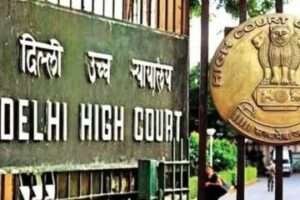Facebook Can’t Disrupt India’s ‘Unity In Diversity’ Claiming Ignorance Or Lack Of Pivotal Role
Case: Ajit Mohan & Others vs Legislative Assembly, National Capital Territory of Delhi, and others
Coram: Justices Sanjay Kishan Kaul, Dinesh Maheshwari, and Hrishikesh Roy
Case No: Writ Petition (C) No.1088 Of 2020
Court Observation: “The capital of the country can ill-afford any repetition of the occurrence and thus, the role of Facebook in this context must be looked into by the powers that be. It is in this background that the Assembly sought to constitute a peace and harmony committee – whether it has the legislative competence or not is an aspect we will deal with it under the relevant head. The Assembly being a local legislative and governance body, it cannot be said that their concerns were misconceived or illegitimate,”
“It is too late in the day for companies like Facebook to deny that they use algorithms (which are sequences of instructions) with some human intervention to personalize content and news to target users. The algorithms select the content based on several factors including social connections, location, and past online activity of the user”.
“The role played by Facebook is, thus, more active and not as innocuous as is often presented when dealing with third-party content”
“Internationally, Facebook has had to recognize its role in failing to prevent division and incitement of offline violence in the context of the stated ethnic cleansing in Myanmar where a crescendo of misinformation and posts, somehow missed by Facebook employees, helped fuel the violence. The platform similarly apologized for its lack of serious response to evident signs of abuse of the platform in Sri Lanka, which again is stated to have stoked widespread violence in 2018 in the country and had to acknowledge its need to be regulated though the exact method is still unclear and a prerogative of law-making authority”.
“…while social media, on the one hand, is enhancing equal and open dialogue between citizens and policymakers; on the other hand, it has become a tool in the hands of various interest groups who have recognized its disruptive potential. This results in a paradoxical outcome where extremist views are peddled into the mainstream, thereby spreading misinformation”
“Election and voting processes, the very foundation of a democratic government, stand threatened by social media manipulation. This has given rise to significant debates about the increasing concentration of power in platforms like Facebook, more so as they are said to employ business models that are privacy-intrusive and attention soliciting”
“The sheer population of our country makes it an important destination for Facebook. We are possibly more diverse than the whole of Europe in local culture, food, clothing, language, religion, traditions and yet have a history of what has now commonly been called ‘unity in diversity. This cannot be disrupted at any cost or under any professed freedom by a giant like Facebook claiming ignorance or lack of any pivotal role”.
“Platforms and intermediaries must subserve the principal objective as a valuable tool for public good upholding democratic values”
“Facebook is a platform where such political differences are reflected. They cannot wash their hands off the issue as this is their very business. As noticed earlier, their role is not as innocuous as they are seeking to contend”
“We cannot say that informed deliberation inter alia on the best measures through which online mass hate and violence in their geographical jurisdiction can be addressed would not be within the Committee’s area of competence as it would undermine the very purpose of a vital democratic polity” “The unfortunate communal riots between 24th and 29th February 2020 in various parts of Delhi, led to the death of 53 persons, caused significant damage to public and private property, disruptions to schools, transport, water supply, medical and other civic amenities.
The complexity of communal tensions and their wide-ranging ramifications is a matter affecting citizens of Delhi and it cannot be said that the Government of NCT of Delhi cannot look into the causal factors in order to formulate appropriate remedial measures. Appropriate recommendations made by the State Government in this regard could be of significance in the collaborative effort between the Centre and the State to deal with governance issues. It is in that context that this Court had recognised that certain local interests are best addressed by the elected representatives of the concerned State”
[doc id=6952]
Previous Posts
Recovery Of Weapon Used In Commission Of Offence Is Not A Sine Qua Non For Conviction: Supreme Court
‘Judicial System Exists For Common Man’: Supreme Court Emphasizes The Need To Write Short & Clear Judgments & Restrict Time For Oral Submissions Download Judgement




